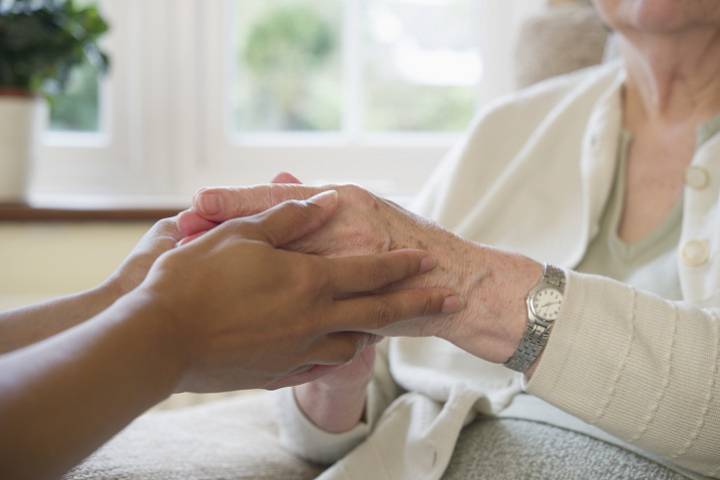What would happen to the people you care for if you were to get sick or have to self-isolate due to COVID-19?

New research suggests only about half of Ontario’s family caregivers have an answer, with about 48 per cent of respondents to a Leger survey for the Ontario Caregiver Organization (OCO) answering that they do not have a contingency plan.
The survey defined caregivers as those who support someone due to “frailty, palliative care, long-term illness, long-term recovery from accident or surgery, degenerative disease, physical or mental health challenge, or old age-related disorder.”
The organization also says the number of caregivers in the province has grown from an estimated 3.3 million to 3.7 million due to the COVID-19 outbreak.
A caregiver contingency plan, according to the OCO, should include: identifying who will take over as primary caregiver, detailed documentation of the home care plan, list of any medications, contact information for healthcare and other supports, and plans to keep the person receiving care “socially engaged.”

The research also found that about 66 per cent of caregivers would appreciate online or phone support for their own mental health, roughly 60 per cent would find access to a peer support group helpful, and 43 per cent “indicate they currently need financial support from their employers.”

Get weekly health news
“Family caregivers provide a significant amount of care, making it important that they have a contingency plan in place should they become ill or need to self-quarantine and we are here to help,” says the organization’s CEO, Amy Coupal.
“This research is helping to identify the increased and changing supports and resources that caregivers need; supports we have worked quickly to develop that are now available through the Ontario Caregiver Organization.”
The OCO says it is “adapting its existing programs” and implementing new resources to help caregivers during the COVID-19 pandemic, including a contingency planning checklist.
The research was conducted by Leger on behalf of the OCO and involved a survey of 500 Ontario caregivers on March 19 and 20, with a margin of error of +/-4.4 per cent, 19 times out of 20.
Questions about COVID-19? Here are some things you need to know:
Health officials caution against all international travel. Returning travellers are legally obligated to self-isolate for 14 days, beginning March 26, in case they develop symptoms and to prevent spreading the virus to others. Some provinces and territories have also implemented additional recommendations or enforcement measures to ensure those returning to the area self-isolate.
Symptoms can include fever, cough and difficulty breathing — very similar to a cold or flu. Some people can develop a more severe illness. People most at risk of this include older adults and people with severe chronic medical conditions like heart, lung or kidney disease. If you develop symptoms, contact public health authorities.
To prevent the virus from spreading, experts recommend frequent handwashing and coughing into your sleeve. They also recommend minimizing contact with others, staying home as much as possible and maintaining a distance of two metres from other people if you go out.
For full COVID-19 coverage from Global News, click here.









Comments
Want to discuss? Please read our Commenting Policy first.